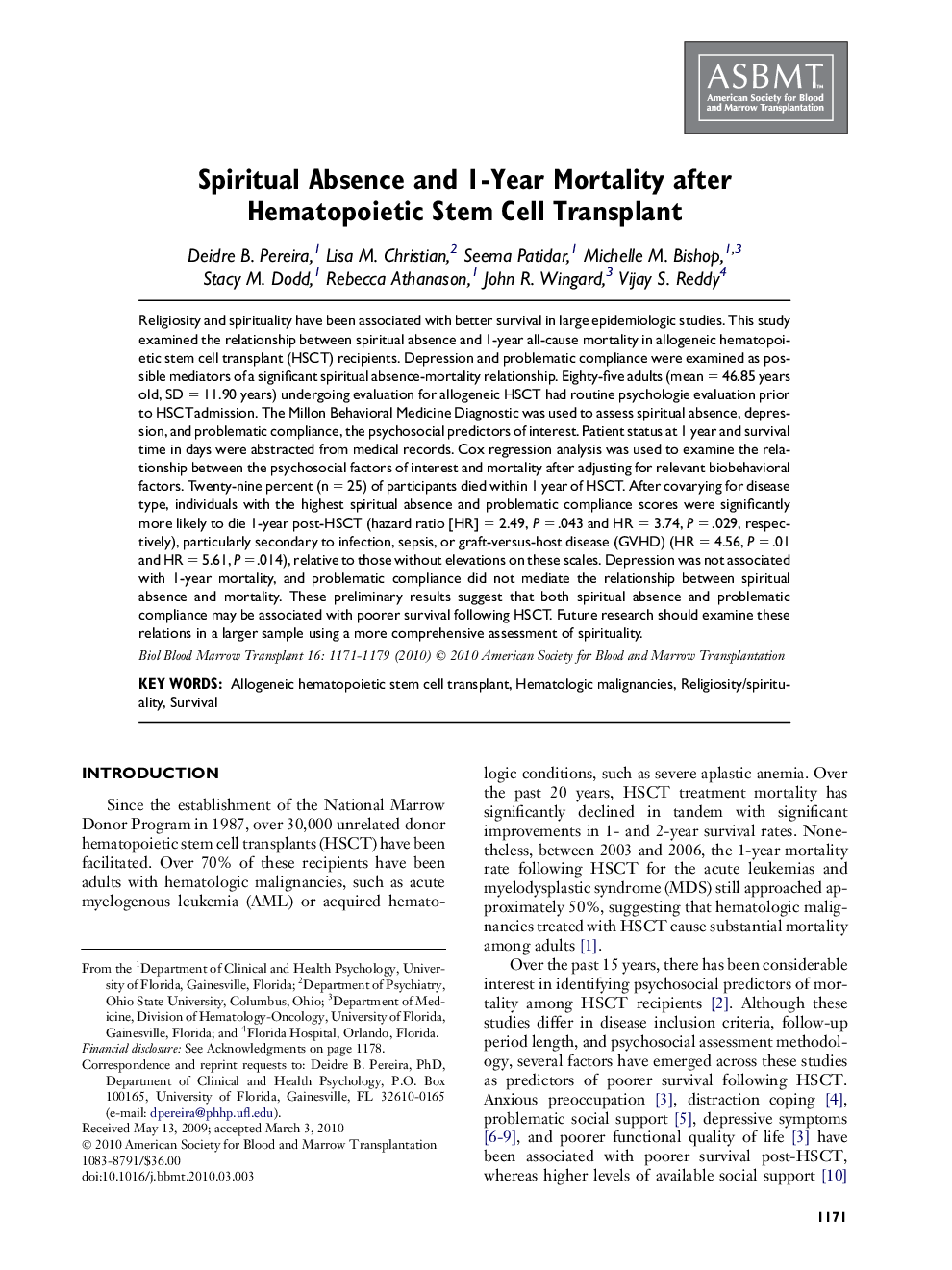| کد مقاله | کد نشریه | سال انتشار | مقاله انگلیسی | نسخه تمام متن |
|---|---|---|---|---|
| 2102758 | 1546332 | 2010 | 9 صفحه PDF | دانلود رایگان |

Religiosity and spirituality have been associated with better survival in large epidemiologic studies. This study examined the relationship between spiritual absence and 1-year all-cause mortality in allogeneic hematopoietic stem cell transplant (HSCT) recipients. Depression and problematic compliance were examined as possible mediators of a significant spiritual absence-mortality relationship. Eighty-five adults (mean = 46.85 years old, SD = 11.90 years) undergoing evaluation for allogeneic HSCT had routine psychologie evaluation prior to HSCT admission. The Millon Behavioral Medicine Diagnostic was used to assess spiritual absence, depression, and problematic compliance, the psychosocial predictors of interest. Patient status at 1 year and survival time in days were abstracted from medical records. Cox regression analysis was used to examine the relationship between the psychosocial factors of interest and mortality after adjusting for relevant biobehavioral factors. Twenty-nine percent (n = 25) of participants died within 1 year of HSCT. After covarying for disease type, individuals with the highest spiritual absence and problematic compliance scores were significantly more likely to die 1-year post-HSCT (hazard ratio [HR] = 2.49, P = .043 and HR = 3.74, P = .029, respectively), particularly secondary to infection, sepsis, or graft-versus-host disease (GVHD) (HR = 4.56, P = .01 and HR = 5.61, P = .014), relative to those without elevations on these scales. Depression was not associated with 1-year mortality, and problematic compliance did not mediate the relationship between spiritual absence and mortality. These preliminary results suggest that both spiritual absence and problematic compliance may be associated with poorer survival following HSCT. Future research should examine these relations in a larger sample using a more comprehensive assessment of spirituality.
Journal: - Volume 16, Issue 8, August 2010, Pages 1171–1179